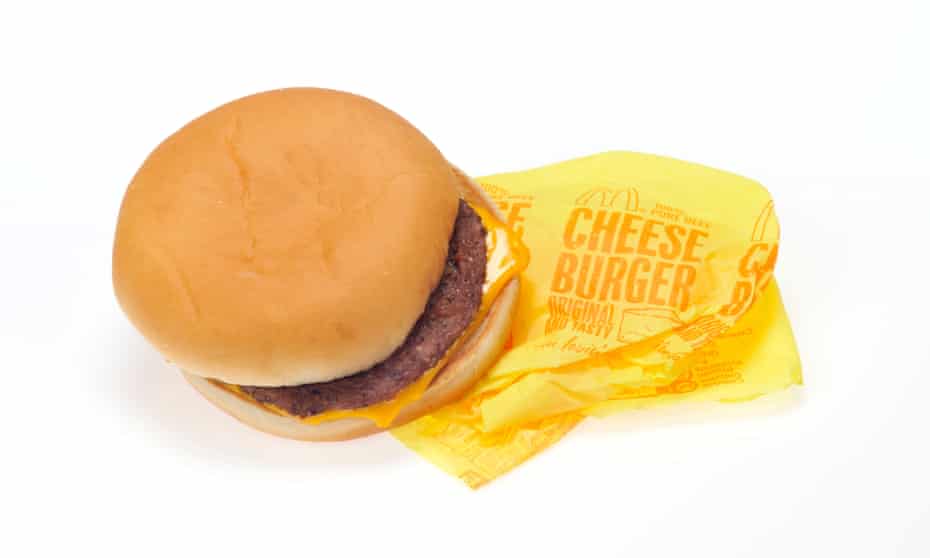Your fast food wrappers contain toxic chemicals. Why is that allowed?
Fast food boxes and wrappers contain toxic chemicals known to interfere with our reproductive systems and contribute to attention and learning disorders

It’s no surprise that fast food is generally bad for your health. But now there’s a new reason to worry: according to a new study out of George Washington University, fast-food containers (such as wrappers used for burgers and burritos) contain toxic chemicals known to interfere with our reproductive systems and contribute to attention and learning disorders. Put simply, our hamburgers and burritos are wrapped in toxic waste.
Many convenience foods come with an ingredient list showing consumers what went into the product they’re eating or drinking. Of course, this list doesn’t include the chemicals used to make the box, bag or wrapper encasing the food, or other materials that come into contact with our meal – like the plastic gloves used to handle the sandwich toppings. But these compounds make their way into our food and we ingest them.
The George Washington study found ortho-phthalates in burritos and burgers, while another study determined that PFAS chemicals (the non-stick chemicals made famous by the recent film Dark Waters) are in more than half of the contact paper used to wrap desserts and baked goods and line your pizza box.
PFAS exposure is associated with testicular cancer, thyroid disease and immune dysfunction, among many other alarming conditions. According to population studies, all Americans now have traces of ortho-phthalates and PFAS in their bodies, along with dozens of other compounds.
It’s understandable if you vow to never eat a burrito or burger again, or at least pledge to stop feeding them to your kids. But, as I’ve shown in my research, blaming ourselves and promising to eat or shop differently gets us almost nowhere in the long run. To make the food system safer for everyone we need to direct some of our disgust and anger toward the Food and Drug Administration (FDA) and the companies that make food packaging.
The FDA is responsible for making sure that convenience foods and food packaging are safe but it has utterly failed to do so. Time and time again, the FDA has ignored calls to reform how it evaluates the safety of food and food packaging materials, or has relied on manufacturers’ goodwill to voluntarily change the packaging materials they use.
Fast-food chains bear the lion’s share of responsibility for this problem. Campaigns demonstrating the toxicity of food packaging materials have made this industry aware that its packaging is full toxic substances. A few companies, like McDonald’s, have promised to phase out some of these harmful compounds, like PFAS, but many have not.
In fact, chains continue to actively push their products on Black and Hispanic youth through targeted marketing. That companies actively promote products they know to be harmful is disturbing. It’s especially alarming because adolescence is a time of rapid growth and development that is sensitive to the harmful effects of toxic chemicals. As social scientist Dr Naa Oyo Kwate shows in her work, these companies attempt to lock in their consumer base and a low-wage labor force by locating their franchises in poor neighborhoods and communities of color.
Some might argue that consumers need to absorb the blame here, reasoning that there’s no excuse for buying foods known to be unhealthy. But pointing the finger at consumers ignores how this problem is a systemic and regulatory one. It lets government and fast-food chains off the hook for enriching shareholders at the expense of public health.
To protect the public from chemicals in all food packaging, the FDA must radically revise its standards for food packaging and force food companies to find safer and greener options. We know that the agency can be attentive to public health – it has, after all, meticulously reviewed the safety data for vaccines for Covid-19 to deliver safe and effective options for ending the pandemic. The FDA must take that same cautious approach to overseeing our food supply.
Until we have real action from government and business, the responsibility for finding safe packaging will be passed on to neighborhoods with high density of fast-food franchises and on to the rushed consumer who is looking for a convenient meal on their way home from work. With our busy lives we have enough to worry about. It’s time for government and corporate America to act.
-
Norah MacKendrick is an associate professor of sociology at Rutgers University and the author of Better Safe Than Sorry: How Consumers Navigate Everyday Toxics